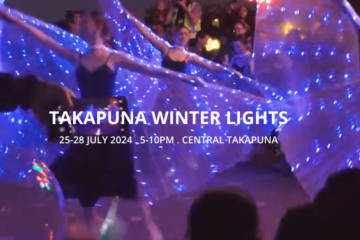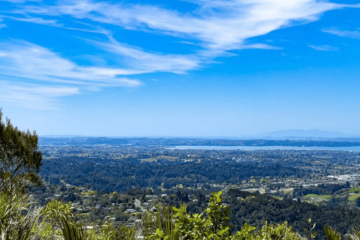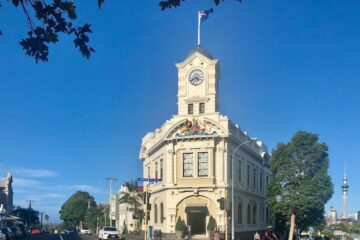What to Think About Before Visiting New Zealand
New Zealand is a dream destination for many travellers, offering stunning scenery, diverse culture, and endless adventure. But before you pack your bags and hop on a plane, there are some things you should think about to make your trip as smooth and enjoyable as possible. Here are some tips and advice to help you plan your New Zealand adventure.
Visa and Arrival Fees
Depending on your nationality, you may need a visa to enter New Zealand. Most visitors from visa-waiver countries can stay for up to 90 days without a visa, but they need to apply for an NZeTA (New Zealand Electronic Travel Authority) and pay an IVL (International Visitor Conservation and Tourism Levy) before arrival. These fees are used to fund tourism infrastructure and environmental projects in New Zealand. You can apply for the NZeTA and pay the IVL online or through a mobile app. The process is quick and easy, but make sure you do it at least 72 hours before your departure.
Customs and Biosecurity
New Zealand is very strict about what you can and can’t bring into the country. This is to protect its unique flora and fauna from pests and diseases. You must declare any food, plant, animal, or outdoor equipment items on your arrival card. If you are unsure, it’s better to declare than risk a fine or prosecution. Some items may be inspected, treated, or confiscated by the customs officers. You can find a list of prohibited and restricted items on the New Zealand Customs website.
Weather and Seasons
New Zealand has a temperate climate with four distinct seasons. However, the weather can be unpredictable and change quickly, especially in the mountainous areas. It’s a good idea to check the weather forecast before you go out and be prepared for all kinds of conditions. Pack layers of clothing that you can add or remove as needed, as well as a raincoat, sunscreen, hat, and sunglasses. The seasons in New Zealand are opposite to those in the northern hemisphere, so keep that in mind when planning your trip.
Summer (December to February) is the peak season for tourism, with warm and sunny days, but also higher prices and crowds. Autumn (March to May) is a great time to enjoy the changing colours of the leaves and mild temperatures. Winter (June to August) is cold and wet, but also offers snow sports and hot springs. Spring (September to November) is a lovely time to see the flowers and lambs, and enjoy lower prices and fewer tourists.
Transportation and Driving
New Zealand has a range of transportation options to suit your budget and preferences. You can fly between the main cities and regions, or take buses, trains, or ferries to explore the country. If you want more flexibility and independence, you can rent a car or a campervan and drive yourself. However, driving in New Zealand can be challenging for some visitors, as you have to drive on the left side of the road, follow the speed limits and road signs, and cope with narrow, winding, and hilly roads.
You also need a valid driver’s license and an international driving permit if your license is not in English. Make sure you are well-rested, alert, and familiar with the road rules before you hit the road. You can find more information and tips on driving in New Zealand on the New Zealand Transport Agency website.
Culture and Etiquette
New Zealand is a multicultural and welcoming country, with a rich and diverse culture. The indigenous people of New Zealand are the Maori, who have a strong and proud history and heritage. You can learn more about the Maori culture and language by visiting museums, cultural centres, or marae (meeting houses). You may also encounter some Maori customs and protocols, such as the hongi (nose-to-nose greeting), the powhiri (welcome ceremony), or the haka (war dance). Be respectful and courteous when interacting with the Maori people and culture, and follow the local etiquette. For example, do not sit on tables or pillows, do not touch or wear someone else’s hat or headwear, and do not enter sacred or restricted areas without permission.
New Zealanders, or Kiwis, are generally friendly, laid-back, and informal. They value honesty, humour, and modesty, and dislike arrogance, boasting, or complaining. They greet each other with a handshake, a smile, or a casual hello. They use first names rather than titles, and often add mate, bro, or sis to show affection or friendship. They also use a lot of slang and expressions, such as sweet as (good), hard out (definitely), or heaps (a lot). Don’t be afraid to ask for clarification if you don’t understand something, or join in the conversation if you do. Kiwis love to chat and share stories, especially about sports, travel, or the weather.
Fun and Adventure
New Zealand is a paradise for fun and adventure seekers, with a wide range of activities and attractions to suit every taste and thrill level. You can hike, bike, kayak, ski, surf, or sail in the stunning natural scenery, or try some of the more extreme sports, such as bungy jumping, skydiving, or jet boating. You can also enjoy the cultural and urban delights, such as museums, art galleries, cafes, bars, or festivals. You can also visit some of the famous movie locations, such as Hobbiton, Weta Workshop, or Mount Doom. Whatever you choose to do, you will have a blast and create unforgettable memories in New Zealand.
New Zealand is a wonderful country to visit, but it also requires some preparation and planning. By thinking about these tips and advice before you go, you will be able to make the most of your trip and have a smooth and enjoyable experience. Happy travels!


